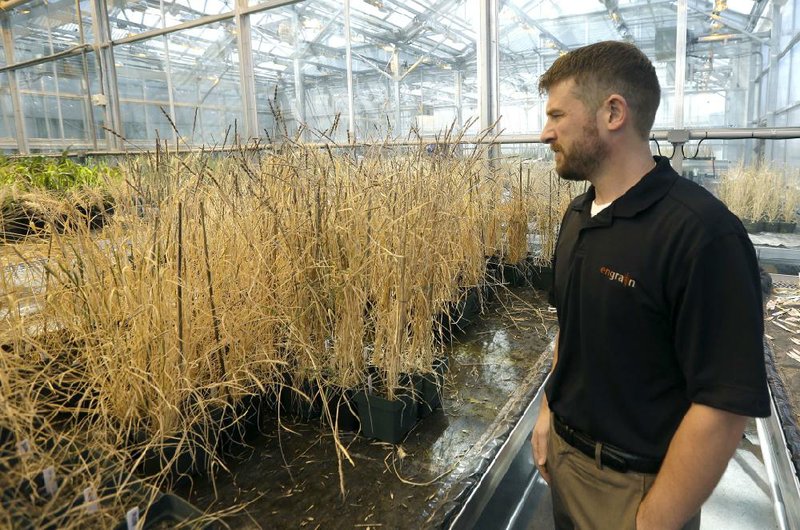WICHITA, Kan. -- New research funded by farmers aims to breed a wheat variety for people who can't eat wheat and other grains, an endeavor that comes as consumer interest in gluten-free foods is booming.
The Kansas Wheat Commission is spending $200,000 for the first two years of the project, which is meant to identify everything in wheat's DNA sequences that can trigger a reaction in people suffering from celiac disease, an autoimmune disorder in which eating even tiny amounts of gluten -- comprised of numerous, complex proteins that give dough its elasticity and some flavor to baked goods -- can damage the small intestine. The only known treatment for it is a diet without foods that contain wheat, rye and barley.
Though celiac disease is four to five times more common now than 50 years ago, only about 1 percent of the world's population is believed to suffer from it. But the gluten-free food business has skyrocketed in the past five years, driven in part by those who are either intolerant to gluten or following a gluten-free diet because they believe it's healthier or may help them lose weight.
Sales of gluten-free snacks, crackers, pasta, bread and other products reached $973 million in the U.S. in 2014, up from $810 million the previous year, according to a January report by consumer research firm Packaged Facts, which analyzed the sales of hundreds of explicitly labeled and marketed gluten-free products and brands at supermarkets, drugstores and mass merchandisers.
Supporters of the Kansas research say this isn't a way to regain market share.
"If you know you are producing a crop that is not tolerated well by people, then it's the right thing to do," said the project's lead researcher, Chris Miller, senior director of research for Engrain, a Kansas company that aims to enhance the nutrition and appearance of products made by the milling and cereal industry.
Gluten-free foods are a niche product, and in the broader context of the world's wheat markets, it is not a driving factor, according to Dan O'Brien, extension grain market specialist at Kansas State University. "I anticipate it will develop as a specialty market," he said.
The research, which began in July at the Wheat Innovation Center in Manhattan, Kan., is still in its early stages, with researchers extracting proteins from seeds of various varieties of wheat. Miller has yet to begin work combining the proteins with antibodies produced by the human immune system to test for reactions.
He also plans to examine the wild relatives of wheat as well as modern varieties, and will tap into a Kansas wheat variety repository in hopes of finding a variety -- perhaps one that fell out of favor among commercial farmers -- that might already be low in reactivity for celiac sufferers. Researchers hope to use that variety to develop a gluten-free wheat using traditional breeding methods.
Miller's methodology might be "too simplistic an approach" that wouldn't identify all the toxic sequences that trigger a celiac reaction, said Armin Alaedini, assistant professor of medical sciences at Columbia University and a researcher at the New York-based school's Celiac Disease Center.
Alaedini, after looking at Miller's plan online, said the project may end up with a less toxic wheat product that isn't completely safe for all celiac disease patients. "After all this effort, this product that is coming out ... is unlikely to be superior in terms of nutritional value or baking properties and taste to the gluten-free products that are already on the market," Alaedini said.
The medical advisory board for the Celiac Disease Foundation, a nonprofit based in Woodland Hills, Calif., could not reach a consensus on the viability of Miller's research. But the organization's chief executive officer, Marilyn Geller, is encouraged.
Her son had been sick since birth before being diagnosed with celiac disease at age 15, Geller said, and his father was later diagnosed. Because the disorder is genetic, Geller's grandchildren will be at risk of getting it.
The more the disease is in the public eye, the more physicians are aware of it, she said, and it'll be more likely the federal government will fund research.
"I am certain that there are a large number of people with celiac disease who [like] the idea of being able to eat actual wheat, with the properties of wheat that make the bread nice and fluffy," she said. "The idea of having a variety of wheat that they could eat that has those wonderful wheat-like properties would certainly be very interesting for them."
Business on 03/24/2015

